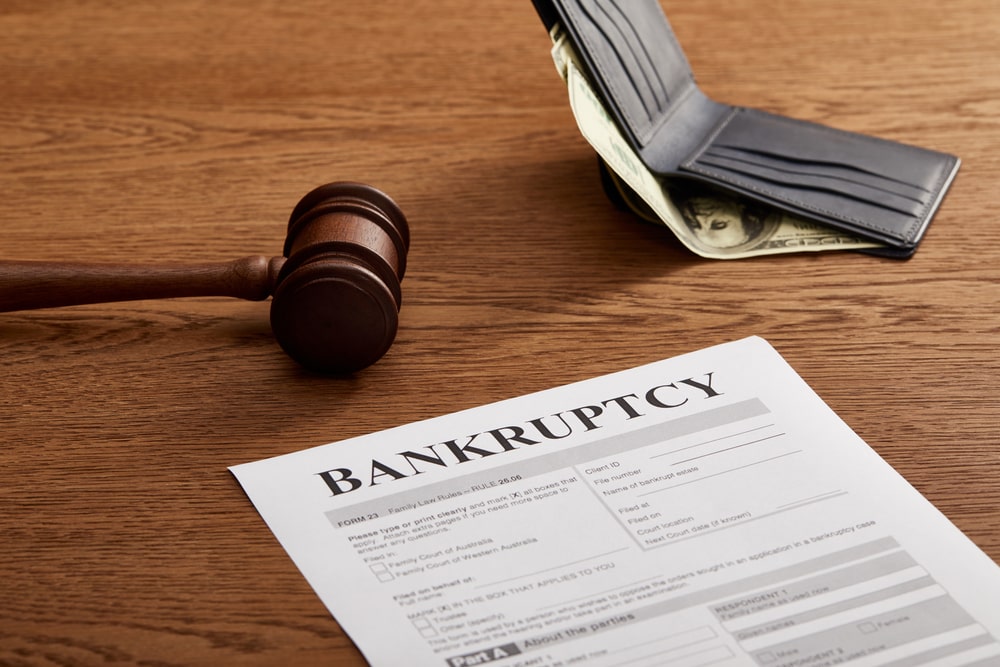
Different Bankruptcy Matters We Can Help With
Bankruptcy is a legal tool that can help individuals, families, and businesses address serious financial challenges. There are different types of bankruptcy, each designed to handle specific situations, from overwhelming personal debt to struggling business operations. Our North Carolina bankruptcy lawyer will work with you to understand your circumstances and determine which option is the best fit for your goals. Whether you need to discharge unsecured debt, reorganize your payments, or protect important assets, we’re here to guide you through the process and help you find the best path toward financial stability.
Chapter 7 Bankruptcy
We help individuals and families who are facing overwhelming unsecured debt find relief through Chapter 7 bankruptcy. This process can allow you to discharge certain debts, such as credit card balances, personal loans, and medical bills, giving you a financial reset.
Our NC Chapter 7 bankruptcy attorney can guide you through the process from the first filing to the final discharge, helping you move forward with a cleaner financial slate.
Chapter 13 Bankruptcy
For those who have a steady income but need time to catch up on overdue payments, Chapter 13 bankruptcy may be the right approach. It allows you to reorganize your debts into a repayment plan that typically lasts three to five years.
This type of bankruptcy can help you keep important assets, such as your home or vehicle, while still addressing your debt obligations. We work with you to prepare a manageable plan and file the necessary documentation so you can focus on rebuilding.
Business Bankruptcy
If you own a business that is struggling to keep up with financial obligations, bankruptcy can be a strategic decision. Depending on the situation, this could involve Chapter 7 to close and liquidate the business or Chapter 11 to restructure operations and debt.
Our North Carolina bankruptcy lawyer has extensive experience working with business owners to review all available options and develop a plan that addresses both current challenges and future goals.
Stopping Foreclosure Or Repossession
Filing for bankruptcy can be a powerful tool to stop foreclosure on your home or prevent repossession of your car. The automatic stay that takes effect when you file can temporarily stop collection actions, giving you the time and legal protection needed to address the underlying debt. We can help you explore whether Chapter 7 or Chapter 13 bankruptcy offers the right approach to keep your property while working toward debt relief.
Medical Debt Relief
Medical debt can accumulate quickly, even for those with insurance. Whether due to a serious illness, unexpected accident, or ongoing treatment, these costs can become overwhelming.
Bankruptcy may allow you to discharge medical bills entirely or restructure them into a repayment plan. Our firm understands how these debts can disrupt your financial stability, and we work to find the best path forward for your situation.
Credit Card And Personal Loan Debt
High-interest credit card balances and personal loans are common reasons people seek bankruptcy protection. If these debts are making it impossible to stay current on other obligations, bankruptcy can provide a path to relief. By reducing or eliminating these debts, you can free up resources to manage your essential living expenses and regain control over your finances.
Take The Next Step Toward Debt Relief
At The Layton Law Firm, we handle each bankruptcy matter with the goal of helping you build a brighter and more secure future. We focus on understanding your specific financial circumstances and tailoring a solution that meets your needs, whether that involves liquidation, reorganization, or a mix of both.
If you are dealing with overwhelming debt, you do not have to face it alone. Our NC bankruptcy lawyer is here to help you take control of your life. We will review your situation, explain your options, and work with you to develop a plan that makes sense for your life. Contact our law office today to start building your path to financial stability.
Many of my daily phone calls come on the heels of an individual receiving a Writ Of Execution. Here are some general questions I answer freely on those calls, and some guidelines to help you protect your property if you receive a writ of execution.
Does The Sheriff Just Show Up At My House?
Yes. But you’re not required to let the Sheriff into your home.
What If The Sheriff Comes When I’m Not Home?
The Sheriff is not allowed to enter and remove your property and belongings, without your permission.
Is The Sheriff Going To Take My Property?
Most writs of execution are for cars or boats or high dollar items. It would be very rare for the Sheriff to take your clothes or other smaller personal items.
Will They Take My Car?
One way to keep the Sheriff from taking your property is to show them there is little equity in it. Keep a copy of your most recent loan statement for the vehicle on hand, so you can show the Sheriff the loan balance, when compared to the blue book value of the vehicle, leaves nothing for a creditor to take interest in.
What If I Didn’t File The “Notice Of Right To Have Exemptions Designated?”
If you don’t file the notice of right to have exemptions designated within the 20 day period to file, you waive the exemptions. This doesn’t prevent you from claiming the same exemptions in bankruptcy, but you won’t be able to use the exemptions to protect property if the writ is executed.
Should I Transfer My Vehicle Or Boat Into The Name Of My Spouse?
While this may work in the short term, the lender/creditor will have a cause of action against you because this will be considered a fraudulent transaction for the purpose of avoiding creditors. Additionally, the transfer may limit your rights in bankruptcy if you choose to file bankruptcy soon after the transfer– exemptions don’t apply to property you don’t own (i.e. a vehicle no longer in your name).
What Are The Available Exemptions?
Here is a list of the exemptions you can claim.
I’m Still Confused. What Should I Do?
Call a bankruptcy attorney– bankruptcy attorneys are accustomed to answering questions like these on a daily basis. There’s no charge to have a phone conversation with me. I’m here to help. 704.749.7747.
Or, complete this very basic contact request and I’ll call or email you as soon as I receive it– you have options. Act quickly to protect your family’s assets.

Christopher D. Layton, Esq. is the founder and lead attorney of The Layton Law Firm. He has been practicing law in Charlotte since 2000 and currently focuses on the plaintiff’s needs and personal injury clients. Chris chose to become a lawyer to protect people who would be taken advantage of without strong legal advocacy, and this dedication to the needs of his clients shows in the firm’s strong record of successful results. He founded The Layton Law Firm in 2011.

